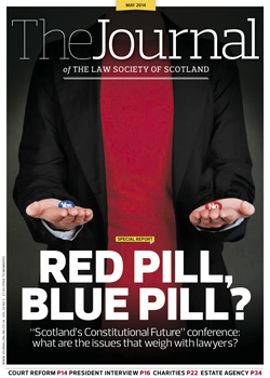When family farming partnerships go wrong
The case of Mr and Mrs Ham against their son John (Ham v Ham [2013] EWCA Civ 1301) is a prime example of what can go wrong when advisers fail to understand the different dynamics that exist in a family business and do not advise properly. The result of the family dispute is that Mr and Mrs Ham face losing the farm which represented their life’s work and their only source of income.
Background
Mr and Mrs Ham started their farming business in 1966. By 1997, the business had grown substantially and Mr and Mrs Ham took John, who was 19, into the family partnership. At that time, Mr and Mrs Ham owned 440 acres of land, along with other farming assets and a sizeable dairy herd. John worked hard and it was expected that he would take over the mantle one day.
The three family members entered into a formal partnership agreement that required any partner to give to the others three months’ written notice if the partnership was to be terminated. The remaining partners were entitled to buy out the leaving partner at the “net value” of their share.
In 2009, John served notice on his parents that he wished to leave the partnership. There then ensued a court battle as to how the value of John’s share of the partnership should be calculated. Initially, it was decided that John’s share would be calculated on the same basis as the annual accounts were drawn up, i.e. the “book value” of the estate, rather than an up-to-date full market value of the partnership assets. John appealed against this decision.
The partnership agreement
The partnership agreement stated that the net value of the share should be agreed between the partners. If no agreement could be reached, the value would be decided by the accountants who acted for the partnership. The appeal was allowed on the basis that there was no presumption or default rules indicating how the shares should be valued – rather, all of the circumstances needed to be taken into account. The partnership agreement needed to be interpreted and the fact that this was a family farming partnership had to be taken into account. The partnership was likely to be asset-rich but cash-poor.
Unfortunately, the adviser who drafted the agreement did not make a distinction between assets and capital, and did not take into account that their client was a family working together and different dynamics might be in play. The accounts prepared during the partnership did not indicate how the assets should be shared on termination of the partnership. If the partnership were wound up, the assets would have to be sold and the proceeds distributed between the partners. It would seem strange if the same method were not applied when a partner left the partnership.
It was decided by the court that, because the relevant clause did not state that the outgoing partner was entitled to his capital and profit, but rather the “net value” of his share, John was entitled to his share of the partnership property. The Hams will have no other option but to sell the business to pay John for his share.
Lessons learned
Conflict is systemic in every family business; there is competition for limited resources in the family and in the business in terms of love, time, money, opportunity, talent, control and power. Everyone with a stake in either the family and/or the business has different expectations. These expectations need to be analysed and discussed, but it is difficult for the family to understand and know how to go about this.
Had the family sat down with a family business adviser before the difficulties began, the matter might not have gone to court and a solution could have been found to ensure the family ties were not broken irreparably. An adviser must be aware of factors that need to be considered and addressed to prevent the family falling out, and these must be borne in mind when advising the family. A specialist family business adviser has the skills and knowledge to recognise any conflict and the experience to tackle it.
Family businesses account for 66% of the UK’s SMEs, and yet most struggle to hand over the business successfully. Perhaps if a succession plan had been implemented with the help of a family business adviser, the farm might have been saved for generations to come.
In this issue
- Immigration: where British nationals lose out
- Family actions: be prepared
- The psychology of post-adoption contact
- Attack vectors into the law: Heartbleed
- When family farming partnerships go wrong
- Reading for pleasure
- Opinion: Gillian Mawdsley
- Book reviews
- Profile
- President's column
- The results are in
- The best medicine?
- LBTT: key points for solicitors
- Courts: why the reforms add up
- Unfinished business
- The voice of technology
- Capacity: a growing issue
- Charities and the rise of social enterprises
- Referendum – the rules of debate
- Rewriting the rules
- Family leave – bedevilled by detail
- Strictly confidential?
- Budget: your flexible friend
- Scottish Solicitors' Discipline Tribunal
- Food for thought
- The consumer protection challenge
- People on the move
- Ask us another
- Healthy discord
- Claims, trends and targets
- Ask Ash
- Law reform roundup
- Cost of Time 2014: survey now open






